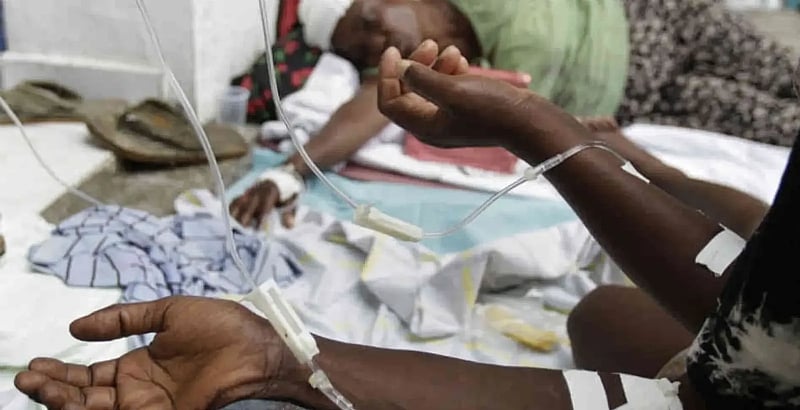The Effutu Municipal Hospital in Ghana is currently grappling with a cholera outbreak, reporting 29 confirmed cases out of 356 suspected cases, predominantly concentrated within a single family cluster in the Winneba locality. The outbreak has tragically claimed one life, with another death potentially linked but occurring in a different timeframe. The hospital has initiated robust contact tracing procedures to identify and monitor individuals who may have been exposed to the disease, aiming to contain the outbreak and prevent further transmission. The affected individuals have been isolated within the hospital and are currently undergoing treatment under the close supervision of medical professionals. The hospital administration has expressed confidence in their ability to manage the situation effectively.
The majority of the confirmed cholera cases are children, raising concerns about the vulnerability of this population segment. However, medical staff have reported that the children are responding positively to treatment, offering a glimmer of hope amidst the challenging circumstances. The concentration of cases within a single family suggests a possible localized source of contamination, which health authorities will likely investigate as part of their containment efforts. This focused approach could involve examining shared water sources, sanitation practices, and food preparation methods to pinpoint the origin of the outbreak and implement preventative measures.
Cholera, a waterborne bacterial infection, typically spreads through contaminated food or water. The disease is characterized by severe diarrhea and vomiting, leading to rapid dehydration and electrolyte imbalance. If left untreated, cholera can quickly become life-threatening, particularly in vulnerable populations such as children and the elderly. Prompt medical intervention, including rehydration therapy and antibiotic treatment, is crucial in managing the disease and reducing mortality rates. The Effutu Municipal Hospital’s swift response in isolating and treating affected individuals, coupled with the positive response to treatment observed in the children, is a testament to their preparedness in handling such outbreaks.
The hospital’s proactive approach in initiating contact tracing is an essential step in containing the spread of cholera. This involves identifying individuals who have been in close contact with confirmed cases and monitoring them for symptoms. Early detection allows for prompt treatment and reduces the likelihood of further transmission within the community. The success of contact tracing hinges on community cooperation and accurate reporting of potential exposures. Health education campaigns emphasizing the importance of hygiene practices, safe water consumption, and proper sanitation can further bolster these efforts.
The current cholera outbreak highlights the importance of robust public health infrastructure and preparedness in responding to infectious disease outbreaks. Adequate resources, trained medical personnel, access to clean water and sanitation facilities, and effective communication channels are crucial components of a comprehensive response. The Effutu Municipal Hospital’s capacity to manage the outbreak thus far underscores the value of investing in these essential public health resources. The ongoing efforts to identify the source of contamination will provide valuable insights into the specific risk factors contributing to the outbreak and inform targeted preventative measures for the future.
Further investigation into the specific circumstances surrounding this outbreak, including the exact source of contamination and the factors contributing to the localized spread within a single family, will be crucial in preventing future occurrences. Collaborative efforts between health authorities, community leaders, and residents are essential in promoting safe hygiene practices, improving sanitation conditions, and ensuring access to clean water sources. Long-term solutions addressing underlying infrastructure challenges and promoting community education are vital for mitigating the risk of future cholera outbreaks and protecting the health of the population. Continuous monitoring and surveillance will be necessary to track the progress of the current outbreak, evaluate the effectiveness of interventions, and adapt strategies as needed to ensure the successful containment of the disease.


